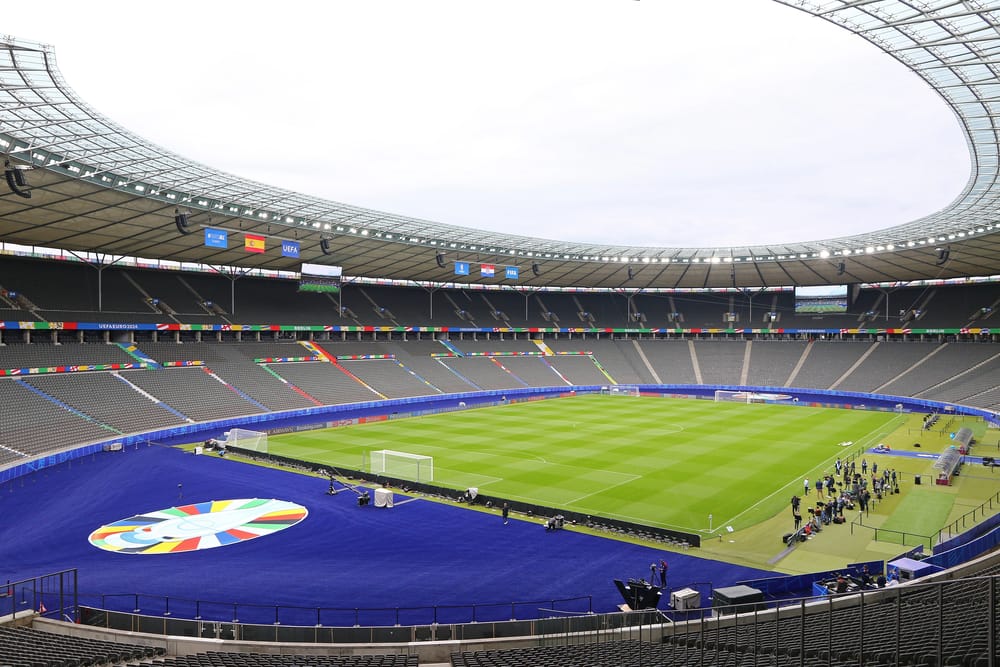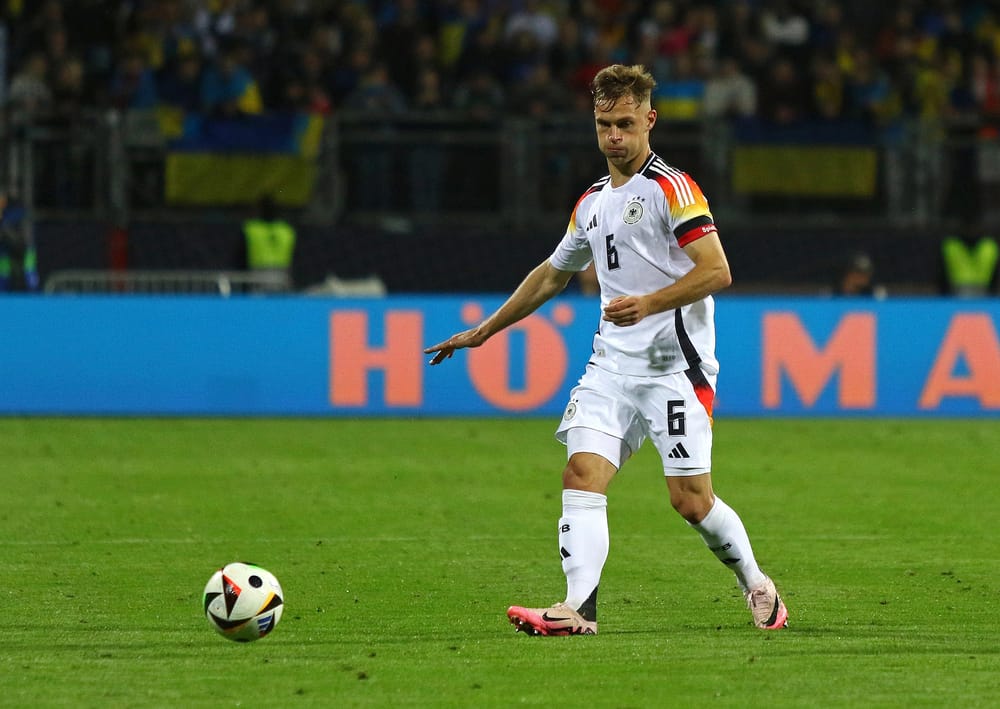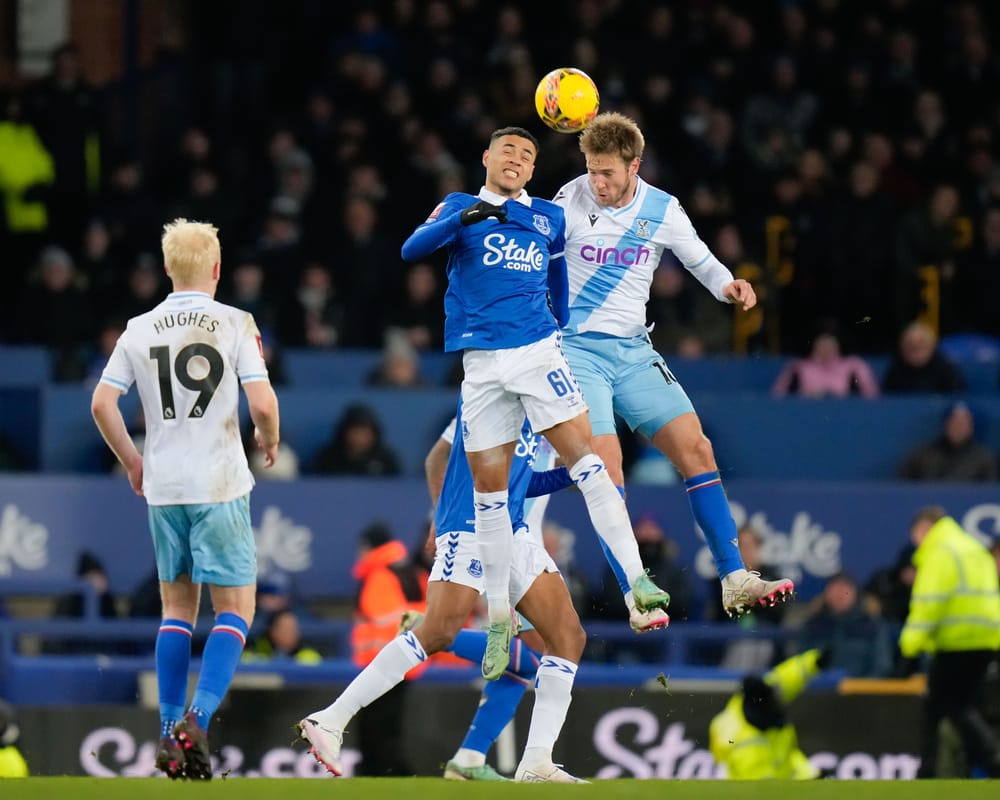In a thrilling encounter filled with tactical maneuvers, key substitutions, and dramatic moments, Croatia and Italy ended their Euro Championship Group B clash with a 1-1 draw. This match, part of the campaign’s third round, saw both teams exhibit resilience and skill, leaving fans eagerly anticipating their future fixtures.
Match Summary
The match kicked off with both teams showing early promise, but it wasn’t until the 24th minute that the first significant event occurred. Croatian midfielder Luka Sučić received a yellow card for a foul, setting the tone for a highly competitive game. The first half ended without any goals, but the intensity was palpable as both teams headed into the locker rooms.
The second half burst into life with immediate substitutions from both sides as Croatia brought on Mario Pašalić and Italy introduced Lorenzo Pellegrini. The game took a pivotal turn in the 53rd minute when a Video Assistant Referee (VAR) review confirmed a penalty for Croatia. Luka Modrić stepped up to convert the spot-kick two minutes later, giving Croatia a 1-0 lead.
Italy responded swiftly. In the 57th minute, Federico Dimarco came on, and Italy’s attacking momentum grew. By the 73rd minute, time-wasting from Luka Ivanušec earned him a yellow card, highlighting Croatia’s attempts to hold onto their slim lead. However, Italy’s persistence paid off in the dying moments of the game. In the 98th minute, Mattia Zaccagni scored an equalizer, assisted by Riccardo Calafiori, ensuring a dramatic end to the match.
Key Players and Plays
Luka Modrić was undoubtedly a standout player for Croatia, not only converting the penalty but also showing leadership on the field. His yellow card for a foul in the 60th minute did little to diminish his impact. On Italy’s side, Mattia Zaccagni’s last-gasp goal was crucial. Federico Chiesa and Gianluca Scamacca also played vital roles, with the former providing the assist for Dimarco’s introduction, which bolstered Italy’s attacking prowess.
Tactical Analysis
Both teams deployed formations that allowed for fluid transitions between defense and attack. Croatia’s strategy revolved around maintaining possession and quick counter-attacks, evident from their 47% possession and high pass accuracy (88%). The decision to bring on Pašalić and Kovačić indicated a focus on midfield stability and creative playmaking.
Italy, on the other hand, dominated possession with 53% and had a higher number of total shots (13). Their multiple substitutions, including bringing on Dimarco and Raspadori, showcased a tactical shift to an aggressive offensive approach in the latter stages of the game. This change was instrumental in breaking down Croatia’s defense and securing the equalizer.
Broader Implications
The 1-1 draw leaves both teams with mixed feelings. For Croatia, the result is a testament to their defensive resilience and strategic depth, but the late equalizer reveals a vulnerability in holding onto leads. As they prepare for upcoming UEFA Nations League matches against Portugal, Poland, and Scotland, fine-tuning their defensive strategies will be crucial.
Italy, meanwhile, will see this draw as a moral victory, demonstrating their ability to fight back under pressure. With future matches against formidable opponents like France, Israel, and Belgium in the UEFA Nations League, this performance will serve as a confidence booster. Their tactical flexibility and depth in squad rotation will be key assets moving forward.
In conclusion, the Croatia-Italy match delivered on excitement and drama, providing valuable insights into both teams’ strengths and areas for improvement. As the Euro Championship progresses, fans and analysts alike will be eager to see how these two footballing giants adapt and evolve based on this hard-fought encounter.
Spain Edges Past Albania in Narrow 1-0 Victory in Euro Championship Group B Clash
In a tightly contested match, Spain managed to secure a crucial 1-0 victory over Albania in their Group B encounter of the Euro Championship. The game, held on a brisk evening, saw both teams putting in a spirited performance, but it was Spain who walked away with the three points, thanks to an early goal from Ferran Torres.
Match Summary
The match started off with Spain asserting their dominance, maintaining a significant portion of the ball possession. Their efforts bore fruit early in the 13th minute when Ferran Torres found the back of the net. Assisted by Dani Olmo, Torres managed to break through the Albanian defense and slot the ball past the goalkeeper, giving Spain a 1-0 lead.
Despite Albania’s efforts to level the score, the first half ended with Spain in control, albeit unable to extend their lead. The second half saw both teams making multiple substitutions to inject fresh energy into their squads. Notable among these was the introduction of Robin Le Normand for Aymeric Laporte at the start of the second half for Spain, and Rey Manaj for Armando Broja for Albania in the 59th minute.
As the game progressed, tension mounted with Albania pushing hard for an equalizer. However, their attempts were thwarted by a resilient Spanish defense. The match also saw its share of disciplinary actions, with yellow cards being shown to Nedim Bajrami of Albania for simulation in the 66th minute and Medon Berisha for a foul in the 89th minute. Spain’s Daniel Vivian was also booked in the 90th minute for a foul.
Key Players and Plays
Ferran Torres was undoubtedly the man of the match, scoring the only goal and leading Spain’s attacking efforts. Dani Olmo, who provided the assist for Torres’ goal, also played a crucial role in Spain’s midfield, orchestrating plays and maintaining possession. On the defensive end, Spain’s backline, including the substitute Robin Le Normand, was solid, effectively neutralizing Albania’s attacks.
For Albania, goalkeeper Etrit Berisha was instrumental in keeping the scoreline respectable, making crucial saves to deny Spain from extending their lead. Despite the loss, Rey Manaj and Armando Broja’s introduction added a spark to Albania’s attack, but unfortunately, they couldn’t convert their chances into goals.
Tactical Analysis
Spain stuck to their traditional possession-based play, utilizing a 4-3-3 formation that allowed them to control the midfield and dictate the tempo of the game. The Spanish side’s ability to maintain 59% possession and complete 517 accurate passes (90% accuracy) was a testament to their tactical discipline and technical prowess.
Albania, on the other hand, adopted a more defensive approach, aiming to counter-attack whenever possible. Their 4-4-2 formation was designed to absorb pressure and exploit spaces left by the advancing Spanish players. However, with only 41% possession and 404 total passes (84% accuracy), their strategy fell short of breaking down Spain’s defense.
Broader Implications
This victory is significant for Spain as it strengthens their position in Group B of the Euro Championship, giving them confidence heading into their next fixtures. With upcoming matches against Serbia, Switzerland, and Denmark in the UEFA Nations League, this win will serve as a morale booster.
For Albania, the loss is a setback, but their performance showed promise and resilience. They will need to regroup and focus on their upcoming Nations League fixtures against Ukraine, Georgia, and the Czech Republic. Their ability to compete against a top-tier team like Spain will provide valuable experience for the matches ahead.
Overall, this match highlighted Spain’s ability to grind out results even when not at their scintillating best, while Albania demonstrated they can be a challenging opponent for any team. Both sides will be looking to build on this game as they move forward in their respective campaigns.



